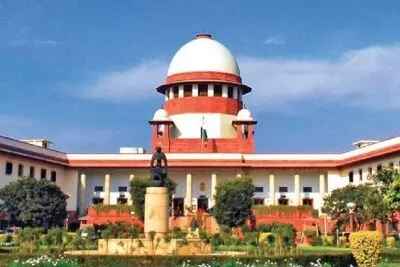
The assault on judiciary that should be resisted
text_fieldsThe Hindutva government's intentions are out in the open when Union Law Minister Kiren Rijiju asked Chief Justice D.Y. Chandrachud in writing to include a representative of the Central Government in Supreme Court's collegium. The law minister wants the representative of the Centre in the collegium to make it more transparent and accountable. The letter also envisages state governments to be represented in the High Court collegium. It becomes clear now that the Central Government's policy of procrastinating without deciding even on the short list of judges the collegium submitted to it is part of a government’s strategy. This is despite violating for ages the principle of justice-delayed-is-justice-denied by overwhelming backlog of cases in courts. Till November 25, 2022, 331 posts of judges in 24 High Courts of the country remained vacant. Even though the collegium recommended 148 judges, the Central Government sits on it without approving.
Noted lawyer Prashant Bhushan has pinned down on the motivation behind the government’s announcement when he said: "At present, the Centre is waiting for the change of judges in the collegium. That is why, despite being repeatedly sent to the Supreme Court, the recommendations for appointment of judges are shelved and finally sent back. This is done in the calculation that the old decision will be re-examined as the judges come to replace the retiring judges and the equation in the collegium changes.” Prashant Bhushan's opinion was ratified by Justice Sanjay Kishan Kaul over the objection of Attorney General Venkataramani. In 2014 itself the Modi government sought to end the collegium system and in its stead form the National Judicial Appointment Commission through the 99th Constitution Amendment Bill. The opposition also threw its weight behind the bill believing the move would end the impropriety in appointment of judges by the judges themselves alongside the alleged undesirable trends in the process. Thus, the constitutional amendment got required support and was passed. However, the Constitution Bench of the Supreme Court declared the new legislation invalid and unconstitutional, foiling the centre’s move. The apex court meanwhile decided to publish the recommendations of the collegium on the appointment of judges on the Supreme Court website. The collegium system is saddled with its own drawbacks. Some incidents in the past do not seem to bode well for free, fair and flawless judicial appointments and transfers.
It is preferable for the relatively better collegium system to continue in the absence of an infallible alternative system. Hence the far-sighted, zealous and morally upright ex-judges and jurists favoured the system. It goes without saying that every step taken by the extremist Hindutva forces after capturing power worries the secular democrats and disturbs the peaceful atmosphere in the country. The situation today bespeaks of a growing feeling that even the Supreme Court is bowing to coercion, pressure or fear-mongering. It is important to expose the dangerous move of the Centre to swallow up the justice system, which still enjoys a lot of freedom and justice. This is despite the fact that it handed the location of the Babri Masjid, vandaliased by zealous fanatics, over to Hindus even after finding that they had no proof to substantiate the claim; that it remained silent to date on the freezing of Article 370 of the Constitution that granted special status to Jammu and Kashmir, while denying statehood; that it approved of demonetization even after the country experienced its ill-effects; that it transferred within hours the Delhi High Court judge who flayed the police for being passive during the Delhi communal riots. More recently when Vice President Jagdeep Dhankhar bluntly said that the power is vested with the Parliament rather than the Supreme Court, the central government's evil intentions came out. It is about time democrats stepped forward to protect an independent and impartial judiciary at any cost.

























